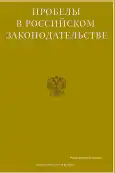Спортивный терроризм – новые вызовы нашего времени
- Авторы: Черкесов Р.М.1
-
Учреждения:
- Краснодарский университет МВД России
- Выпуск: Том 16, № 4 (2023)
- Страницы: 249-253
- Раздел: Общетеоретические, уголовно–правовые и иные проблемы противодействия экстремизму и терроризму. Проблемы профилактики экстремизма и терроризма
- URL: https://journal-vniispk.ru/2072-3164/article/view/250392
- ID: 250392
Цитировать
Аннотация
В данной статье изучены ключевые аспекты возникновения террористических проявлений в спорте. В своей самой простой форме спортивный терроризм состоит в основном из угроз в адрес спортсменов или спортивных объектов, используемых спортсменами. Эти угрозы могут быть словесными или физическими, от простого преследования до нападения или даже убийства. Мотивы таких действий могут быть самыми разными и включать в себя политическую выгоду или религиозный фанатизм, а также обычную ненависть и месть. Однако, независимо от мотивации, факт остается фактом: спортсмены являются особенно уязвимыми мишенями для такого рода терроризма, поскольку они являются публичными фигурами, которые часто демонстрируют сильную личную идеологию, что может сделать их легкой мишенью для тех, кто стремится терроризировать их сверстников.
Установлено, что любое спортивное состязание является идеальной целью для любой террористической организации, так как общеизвестно, что их основная мысль такова: больше жертв – больше эффективность. Как правило цели таких терактов политические. А на любом состязании собирается большое количество людей часто в одном, достаточно маленьком помещении, во-вторых, бдительность людей ослабевает, так как все внимание сосредоточено на матче или бою, в-третьих- достаточно тяжело сформировать охрану, которая могла бы обеспечить безопасность каждому человеку, находящемуся на событии.
Сделан вывод о том, что тенденция развития терроризма в спортивной среде обусловливает рост преступлений в среде фанатов. В целях противодействия данному явлению необходима разработка мер, которые позволят снизить процент совершаемых преступлений, а также не стоит забывать работу полицейских в социальных сетях, с целью пресечения распространения в молодежной среде ультраправых, фашистских и иных идеологий, что также очень важно, ведь в настоящее время фанатское движение сильно ориентировано на молодежь и вовлечение их в фанатские группы, которые нередко пропагандируют националистические убеждения и многие другие террористические или экстремистские убеждения.
Ключевые слова
Полный текст
Открыть статью на сайте журналаОб авторах
Радмир Мухаметбиевич Черкесов
Краснодарский университет МВД России
Автор, ответственный за переписку.
Email: kodzokov.aznaur@bk.ru
майор полиции, кандидат педагогических наук, старший преподаватель кафедры физической подготовки, Северо-Кавказский институт повышения квалификации (филиал)
Россия, Нальчик, КБРСписок литературы
- Батурин В.Ю. Обеспечение правопорядка и общественной безопасности при проведении международных массовых спортивных мероприятий // В сборнике: Актуальные вопросы обеспечения охраны общественного порядка и общественной безопасности в период подготовки и проведения игр Чемпионата Мира по футболу 2018. Материалы внутриведомственной научно-практической конференции. Волгоградская академия МВД России. 2018. С. 110-114.
- Крылов В.А., Кирьянова Л.А., Комиссарчик К.М. Терроризм на спортивных соревнованиях, как метод продвижения интересов незаконных негосударственных акторов международных отношений на международной арене // Ученые записки университета имени П.Ф. Лесгафта. 2017. № 9 (151). С. 155-157.
- Мартыненко С.Е. Политизация спорта: история и современность // Вопросы истории. 2022. № 9-2. С. 263-271.
- Петухов С.В., Шайдуллина В.К. Спорт как отражение мировой политики // Студенческий вестник. 2017. № 1-1. С. 42-45.
- Симонов К.В. Терроризм как угроза современному спортивному движению // Евразийское Научное Объединение. 2020. № 11-5 (69). С. 363-365.
- Сушко Р.А. Влияние процессов глобализации на развитие спортивных игр // Наука в олимпийском спорте. 2018. № 4. С. 39-45.
- Усманов И.М., Гараев М.И. Противодействие преступлениям экстремистского характера в сфере международного спорта // В сборнике: Формирование гражданской устойчивости как фактор противодействия идеологии экстремизма и терроризма. Сборник материалов Всероссийской научно-практической конференции. 2017. С. 343-347.
- Щербакова А.К., Блохина Н.В. Политическое влияние на сферу спорта высших достижений // Наука-2020. 2022. № 5 (59). С. 182-187.
Дополнительные файлы








